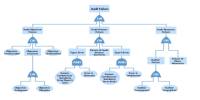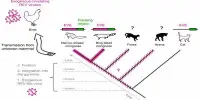Off-the-grid, often known as off-grid, refers to buildings and lifestyles that are designed to be self-sufficient and do not rely on any public utilities. It refers to a lifestyle in which individuals or groups operate independently of public services such as power, water supply, and sewage systems. The term “off-the-grid” typically refers to not being linked to the electrical grid, but it can also relate to other services such as water, gas, and sewer systems, and it can range in size from private residences to small communities. The goal is often to lessen dependency on centralized infrastructure while increasing self-sufficiency and sustainability.
Off-the-grid living allows buildings and individuals to be self-sufficient, which is useful in remote areas where standard utilities are inaccessible and appealing to those looking to reduce environmental impact and living costs. In general, an off-grid building must be capable of supplying its own energy and potable water, as well as managing food, trash, and wastewater.
Here are some key aspects of off-the-grid living:
- Energy Independence: Off-the-grid dwellers often generate their power using renewable energy sources such as solar panels, wind turbines, hydroelectric systems, or a combination thereof. This allows them to generate electricity for their needs without being connected to the main power grid.
- Water Self-Sufficiency: It often involves collecting and managing water independently. This can include harvesting rainwater, digging wells, or using natural water sources such as streams or springs. Water conservation techniques are also typically employed to minimize usage.
- Sustainable Agriculture: Many off-the-grid communities grow their own food using organic and sustainable farming practices. This can include vegetable gardens, fruit orchards, and raising livestock for meat, eggs, and dairy products. Permaculture principles are often applied to maximize efficiency and minimize environmental impact.
- Waste Management: It frequently entails reducing waste and implementing recycling and composting procedures. Human waste can be controlled using composting toilets or other environmentally friendly sewage treatment systems.
- Minimalist Lifestyle: Living off the grid frequently demands a simpler lifestyle with fewer material goods and an emphasis on self-sufficiency. This can include minimizing consumption, reusing products, and adopting DIY solutions for daily requirements.
Overall, off-the-grid living is a varied and expanding movement that encompasses a variety of lifestyles, ideologies, and practices aimed at decreasing environmental impact, increasing self-sufficiency, and cultivating a stronger connection to nature.
















